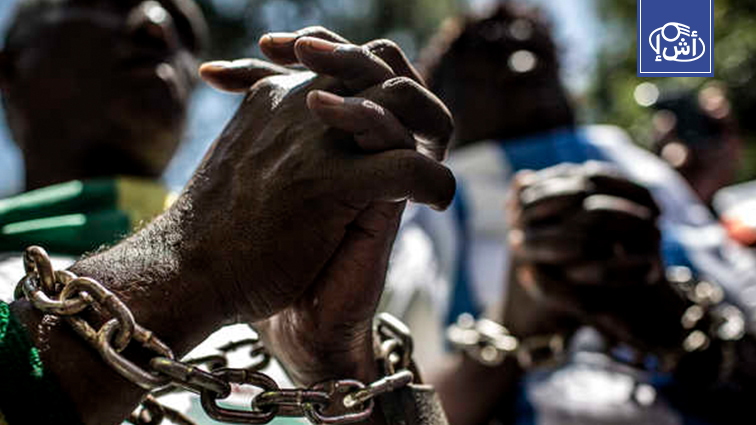A report by the US Foreign Policy Institute highlights the daunting challenges facing Libya in its fight against human trafficking.
Despite international efforts, the results remain without sustainable impact, the report, published on Friday, warned that the situation is getting worse, citing the lack of local institutions capable of protecting victims of human trafficking and prosecuting traffickers, making long-term change elusive.
The report, authored by researcher Skylar Watkins, stressed the failure of the Libyan authorities to confront human trafficking, where the absence of law enforcement forces and weak border control hampers local efforts, and even as arrest warrants have been issued against some of those involved, the limited capacity of the police and security remains an obstacle for the government to pursue criminals.
The report showed that the current criminal code does not provide adequate protection against human trafficking, criminalizing some forms and punishing them with imprisonment, but ignoring other forms such as labor and sex trafficking.
Human trafficking not only affects victims, but also undermines the rule of law, threatens national security, and weakens the country’s economic structure.
He also pointed out that these activities generate profits of more than $ 150 billion annually, making them one of the fastest growing criminal activities and one of the largest informal industries in the world, and promote corruption and endanger the political system.
The ongoing political crisis in the country complicates efforts to eradicate this scourge, with Libya classified as a failed state, prolonging the crisis, and hindering progress.
Human trafficking is a serious crisis on the African continent, and statistics show that millions of people are victims of forced labour and sexual exploitation, with a particular impact in North Africa due to its proximity to Europe.
In 2022, the United States allocated more than $225 million for anti-trafficking projects, but these efforts have not achieved the desired success in eradicating the phenomenon, with Libya and other African countries failing to address it.
The Arab Parliament welcomes the outcomes of the meeting of Libyan leaders in Cairo
